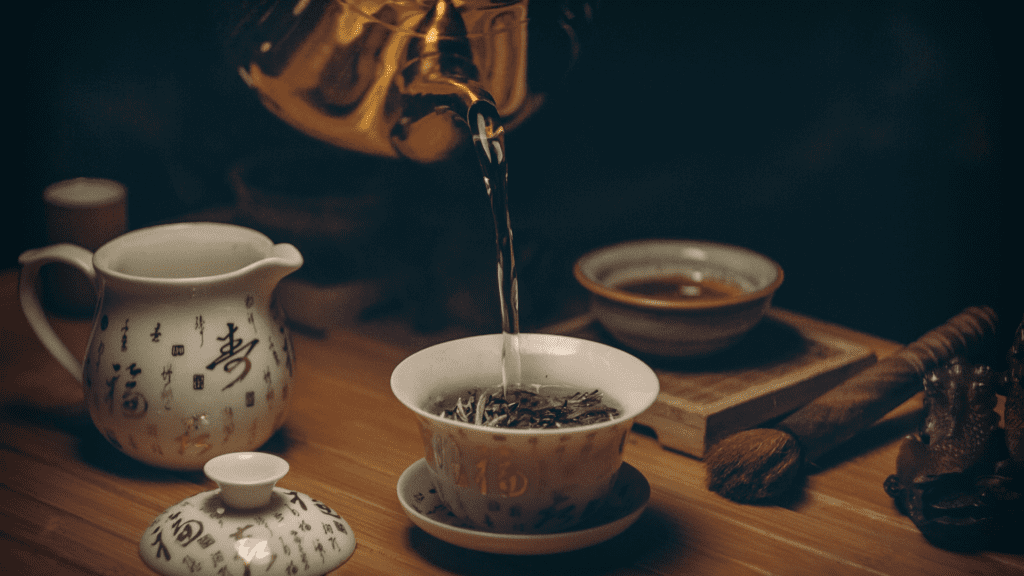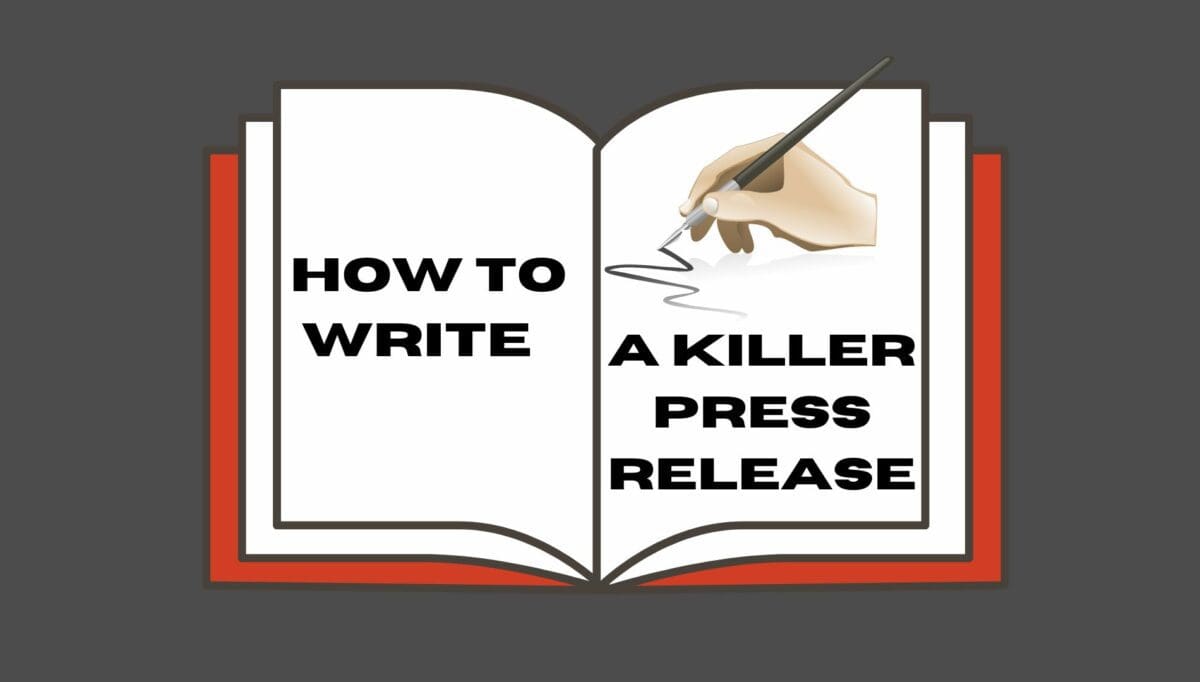
The best tea for singers can have a positive effect on your voice. However, there are certain foods and drinks you might have to remove from your diet to focus on your singing. As a general rule, you should drink water at all times but is tea good or bad for singing and can it harm the voice?
What is the best tea for singers? The best tea for a voice and vocal cords won’t include caffeine. Instead, choose teas for singers such as herbal and green teas. Alongside lemon and honey, these can help to soothe your vocal cords and could lead to improved singing performance.
Tea can dehydrate you and lead to mood crashes, due to the caffeine content. But there are many teas which boost your immune system and coat your throat to leave you less susceptible to colds. Choosing the right type of tea can even fight a sore throat.
So which teas and infusions should singers be drinking? And what drinks should you avoid to keep your voice in the best shape possible?
Are you releasing new music?
Book a meeting with a Music Gateway A&R today.
Discuss release strategies, distribution, growing your fanbase, organic playlisting, press, radio and more.
Is tea good for singing or is tea bad for singing?
The answer is yes and yes, or no and no, depending on which teas you’re talking about and how you’re taking them.
There are different types of tea, so categorising all flavours and types would be illogical. However, most caffeinated black teas do more harm than good for your voice. Caffeine can have a negative effect on your performance – such as stimulating anxiety. Avoid green and black tea as these contain the highest levels of caffeine. However, you could avoid this by switching to decaffeinated tea if you typically get nervous on stage.
Is tea bad for you?
In general tea on its own is not bad for you. Loading lots of sugar into your tea instantly makes it bad for you. Sugar is linked to lots of major health problems and causes a spike in energy followed by a slump. Tea is bad for you when taken with sugar.
We mentioned that you can adapt your tea habits to decaffeinated options, and we recommend ditching sugar for honey. Sugar tends to sit at the back of the throat and causes irritation. It’s also prone to dropping your mood, so you might feel ready to go, but by the time you reach the stage, you experience a sugar crash. On the other hand, honey coats your voice and helps to create a smoother tone, so this is a much healthier alternative.
But when it comes to singing, rather than the matter of general health, then the recommendations become more specific.
Is green tea good for singers?
From a health perspective, green tea has lots of properties that make it good for you, but for a singer, there are drawbacks. The main factor to avoid black and green tea is that it dehydrates the voice. These teas contain diuretic ingredients which make you visit the bathroom more and lead to dehydration. Although you can increase your water intake, it’s best to not get dehydrated in the first place.
All singers should avoid milk – especially during performance days and vocal sessions – so adding this substance to your tea increases the mucus production to muffle your tone. Avoid it if you can. For this reason, any tea taken without milk is better. So if you must have a caffeine hit, have a green tea for energy, rather than a caffeinated black tea with milk. More on green tea later…
What teas are good for singing?
There are all kinds of herbal teas on the market which have many benefits on the voice. It can be a bit overwhelming working out all the differences and other health benefits of each, so we’ve compiled a handy guide.
Here are the major flavours and types, including our favourite teas for singers.
Best teas for vocal cords and singing
Ginger tea
This is another popular tea choice for singers. First, this type of tea doesn’t contain caffeine which maintains balanced blood sugar levels. You can add a teaspoon of honey to sweeten the flavour, and this also helps to create a smooth coating on your throat. Ginger is packed with antioxidants which can soothe an irritated throat and boost your immune system. It’s also known to fight viruses, and you can store it in the fridge in batches. But, warm in the microwave before drinking.
The complete A-Z guide to tea, for singers…
Black Tea
Black tea is the stuff we commonly think of as regular tea. This is your Typhoo, PG Tips, Tetley, Twinings etc (although those brands mostly make other tea flavours now too). It contains antioxidants, but because of the relatively high caffeine content, we don’t recommend this one. But if you do like to drink it with milk, try a caffeine-free version and non-dairy milk, such as soya, coconut or almond milk. This will prevent your voice from getting clogged up.
Breakfast Tea/Earl Grey Tea/Lady Grey Tea
These drinks all fall into the black tea category. Breakfast tea is a heavier, heartier variety, while Earl Grey is more fragrant and lighter, and Lady Grey is even lighter and more fragrant than the Earl. Breakfast tea is probably what you’ll be given if you ask for a straight-up cup of tea in a cafe or restaurant.
Chai
Chai is a delicious blend of herbs and spices, often served in coffee shops as a tasty latte. As it’s quite bitter on its own, chai usually has lots of sugar added to make it more palatable (and unhealthy). The ‘latte’ form is also high in dairy which is not good for the voice. So opt for a sugar-free one made with non-dairy milk, if ordering a latte.
Chamomile Tea
This is a lovely tea for singers as it’s hydrating and gentle on the throat. It also has relaxing properties, so is a great choice if you struggle with nerves and anxiety pre-performance. It’s also good to drink before bed, to help you unwind and relax after a gig.
Fermented Tea
Fermentation is an ancient practice particularly popular in the Far East. Fermented foods carry many health benefits, especially for the digestive system due to the presence of probiotics. But did you know you can drink fermented tea too? Kombucha is a type of fermented tea, that has grown in popularity, especially since it started popping up in Wetherspoons across the country.
Unlike the other teas we talk about in this article, this type of tea actually contains alcohol. So while fermented tea is great for your immune system, singers should limit their intake to a maximum of one cup or glass a day. Drink it in winter especially, to help fight off those pesky cold and flu bugs.
And if you like a bit of DIY when it comes to food and drink, you can even try making your own Kombucha at home. Or you can buy it at health food stores.
Flowering tea
If you’re seeking a pretty tea for an occasion this is likely to be the one you’ll choose. These are also referred to as blooming teas. Containing buds or leaves from flowers, they actually bloom as they steep, so don’t become bitter if left for longer periods, as other teas can. This type of tea originates from the Yunnan province of China. Flowering teas have many useful properties for health. What these benefits are and how they can help you, will depend on which flower you choose.
Lily is an excellent choice for singers. It can alleviate a cough and prevents dry lungs – perfect for winter, when central heating can dry the respiratory system out, affecting the voice. Lily also soothes the nerves.
Ginseng Tea
Ginseng is a good tea for a pep-up when you’re tired. It gets the blood moving (so it’s also beneficial for circulation), is an anti-inflammatory and can even help you think more clearer. The downside is that it can add to feelings of nervousness and give you a dry mouth. So avoid this right before performing and choose a low-potency variety.
Green tea
We’ve already talked a little bit about green tea, as it’s such a big player in the health foods and tea market. Generally, because of the caffeine content, it’s not the best tea for singers. However, there are some benefits to singers. Its compounds can help to improve brain function, so is useful for a mental boost to help with learning and remembering songs. It also makes it a good drink to take when you’re in the studio (or at home) writing new songs.
Herbal Tea
Herbal tea is another term that represents a wide number of products. Almost all the teas listed here come under the banner of herbal teas. They’re also known as infusions, as technically they don’t contain any actual tea. Herbal teas are occasionally known as tisanes and are made up of herbs, spices or plant material steeped in water. Teas that are not classed as herbal, are the green, black, white and oolong varieties of tea.
Iced Tea
Should singers drink herbal tea?
Iced and very cold drinks are not a good idea for singers. Icy liquid constricts the vocal cords, where instead we want them to be warm and free. This is a lovely treat for a summer day, but as it often contains sugar and caffeine (when purchased pre-prepared), make it an occasional one and not before singing.
Lemon Tea
Lemon with warm water not only tastes refreshing and gives you a dose of vitamin C, but it also acts as an effective liver cleanse. Because of this ‘flushing out’ effect, it can also increase your need to urinate. So this isn’t one for right before a gig. Ideally, make it yourself with fresh lemon and drink it every morning to give your immune system and internal organs a boost. It’s also clarifying for the voice.
Lemon Ginger Tea
We’ve talked about lemon tea and ginger tea. As both have excellent health benefits and improve your vocals, this is an easy one to recommend for singers. Many people swear by a lemon and ginger infusion to help clear up a cold too.
Lipton Tea
Lipton isn’t a type of tea as such, but rather a British brand of tea owned by the parent company Unilever. Because of its popularity as an iced tea producer, it is often thought of as a type of iced or lemon tea.
Liquorice root tea
Liquorice root tea is like a spa treatment for your throat. The liquorice coats the vocal cords to leave them hydrated and smooth. This ingredient also helps to help off colds and helps with digesting foods which can often get stuck at the back of your throat. If you find the taste hard to stomach, you can purchase liquorice root tea capsules.
Mint Tea
Peppermint tea falls into this category. But mint infusions also include spearmint tea, apple mint tea and lemon mint tea – again combining those benefits with other flavours. Mint is good for digestion and a healthy digestive system contributes to overall health. This, in turn, will help your vocal muscles and lungs operate at full capacity when singing. It’s also useful if you have a tendency toward nervous stomach upsets and indigestion prior to going on stage.
Nettle Tea
Remember those annoying leaves that would sting you in the woods as a kid? You’d have to go searching for a doc leaf for relief from the itchy sting after an encounter with nettles. But these prolific plants have long been used in food and drink.
Drink nettle leaf tea if you have problems with hay fever or arthritic and inflammation-related pain. The green liquid can help the symptoms of sneezing, wheezing, runny nose and eyes – none of which are helpful to singers – to subside. Start slowly though, as this type of tea can cause stomach upset and fluid retention.
Oolong Tea
Oolong tea is also from the black tea family. It can help with making you alert and assist in cognitive function – so if you find you get sleepy and have a tendency to forget your words, oolong tea might be of use. Otherwise, as with any black or green tea, this contains caffeine, which is less beneficial for singers.
Peppermint tea
This type of tea is great if you have a sore throat or cold because peppermint kills off bacteria. Thanks to its anti-inflammatory qualities, this tea reduces any swelling in your sinuses too, which helps to clear up any mucus. If you feel the symptoms of a sore throat, drink two-three cups of peppermint tea a day to fight off the virus. Ensure the temperature isn’t too hot as this could irritate your throat even further.
Spiced Tea
Spiced is another category of tea, like herbal, which can refer to many different varieties. They tend to originate in the Indian subcontinent and give a great kick to your cuppa. Spiced teas are often drunk without milk, and this in itself makes them better for the voice. Choose a spice, like ginger, which has benefits for the voice, if you want a tea that is good for singing.
Throat Coat Tea
Most of the teas and infusions we’re talking about here are single-type teas. Throat Coat, on the other hand, is a blend of ingredients specifically designed to coat your throat with goodness. They contain a combination of liquorice and slippery elm, with smaller quantities of orange, cinnamon and peppermint. This type of tea is made up of medicinal grade ingredients, meaning the process is more stringent and the resulting concoction is classed as a herbal dietary supplement, rather than a food.
White Tea
White tea is from the same family as green and black tea, however, it is far less processed than the other two. All three are made from the Camellia Sinensis plant. It’s high in anti-oxidants so its properties help fight many major diseases and is even said to help delay the signs of ageing in the skin. If you really lovely black tea but are looking for something with more benefits, this is an option. Although it won’t do anything specifically for your voice.
Yellow Tea
This is where our list gets exotic because yellow tea is believed to be the rarest type of tea. Yellow teas are usually found and produced in certain provinces of China and Korea. The production of these is very limited and they were once used as gifts for Emperors. These teas are delicate and grassy in taste.
While yellow tea is high in vitamins and helps with anxiety, it also has a very high caffeine content indeed – much more so than green or black teas. It’s also very expensive, for these reasons this isn’t a tea we’d recommend as being good for singing.
As you can see, there’s so much choice when it comes to tea for singers. You’re bound to find one you like the taste of from the recommended varieties here.
So our top tips for every singer’s store cupboard? Flowering lily, lemon and ginger, throat coat and liquorice have tons of great benefits for the voice. And now you know which teas to avoid too, you’ll be able to make informed decisions, that not only benefit your vocals but your overall health and well-being.
Related Questions
Is alcohol good for singing voice?
Alcohol, like caffeine, has a dehydrating effect on the vocal cords. Although you’re taking in liquid, you’re actually reducing the hydration in your body. That doesn’t mean you can never drink alcohol but you should do so in moderation, drink lots of water too and avoid it completely before a show.
What helps soothe your throat for singing?
In addition to the teas we’ve recommended here (and voice rest), you can try honey if your throat is raspy and sore. Many singers swear by the lozenges and products from Vocalzone. They’ve been around for years and have a good reputation for fast relief, especially for relief right before a gig.
What do singers drink before they sing?
Water! The brilliant thing about this wonder drink is that it’s completely free and good for you in every way. Take it at room temperature or warm, as cold water is bad for the voice, as can be anything that’s too hot. Add in some fruit for flavouring, or dunk in an infusion for extra benefits.
What do you think – is tea good for singing and if so, which tea is best? Are there certain drinks that you avoid? Let us know in the comments below.









